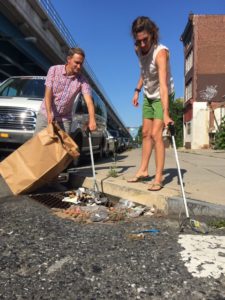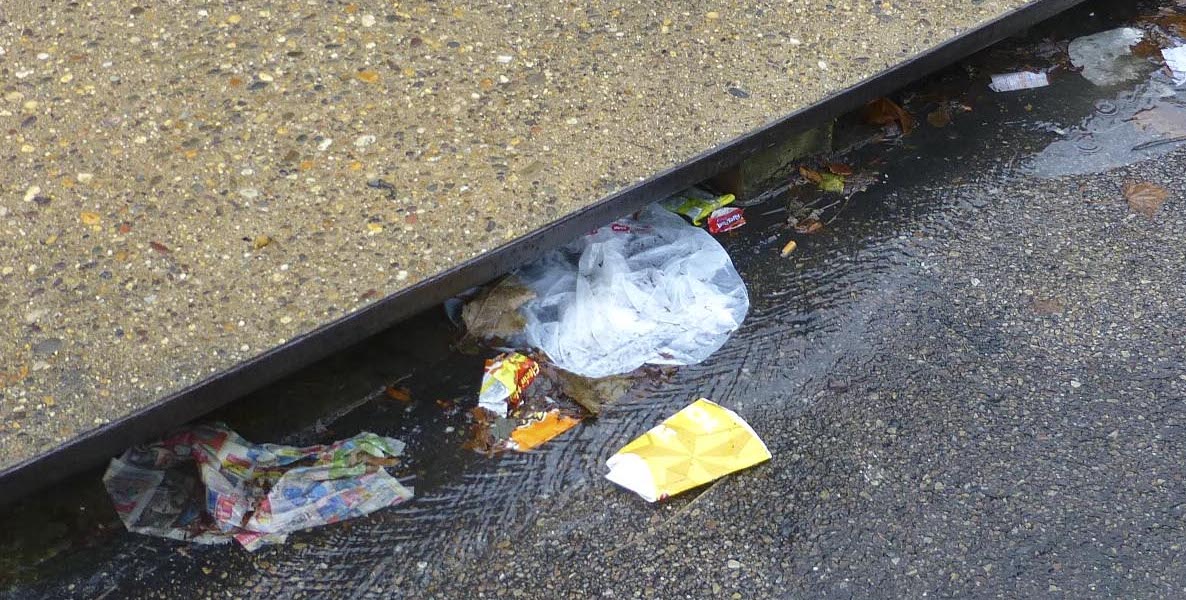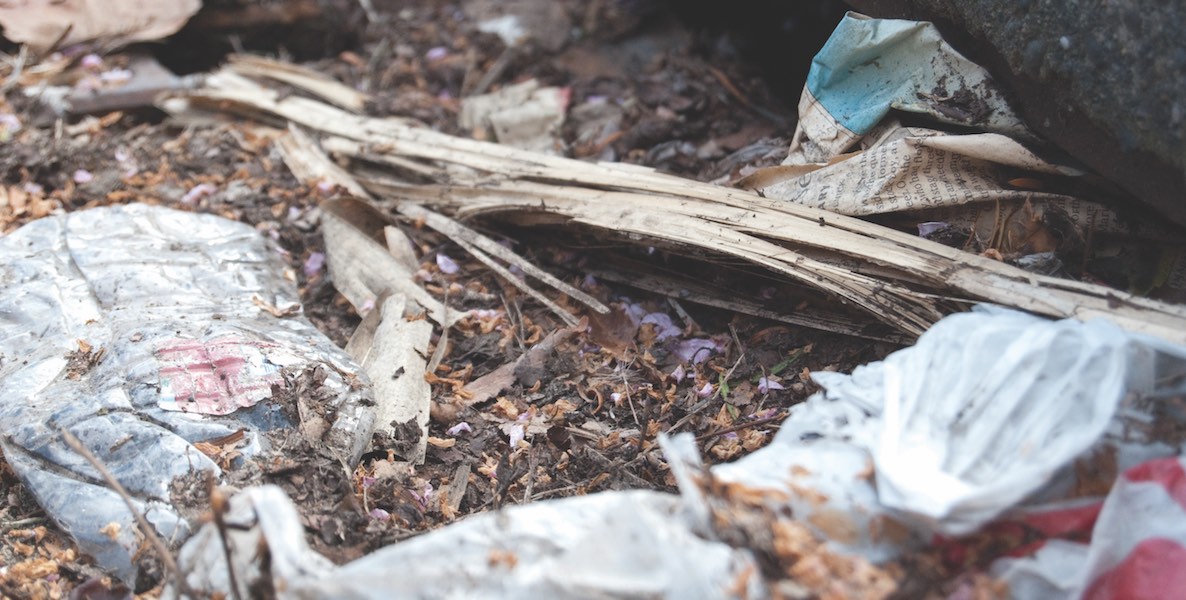On Monday, Mayor Kenney and his Litter Cabinet unveiled a Zero Waste plan with a report called Zero Starts With One.
So, let’s begin with one.
One person named Dave Brindley living on Chestnut Street between 50th and 51st streets was tired of watching his kids and the rest of the neighborhood children play among empty soda cans, old sandwich wrappers and lipstick-stained cigarette butts.
Brindley, a campus minister at the University of Pennsylvania, decided in this case, one man’s trash was just….trash. So with an easy to use hand-grabber and a plastic garbage bag, he set out on his block once a week to scoop up what others left behind.
Brindley continued this weekly ritual for years and recalls the positive feedback he received from fellow neighbors and strangers. “I didn’t know what they would think of me, but now I often get a ‘thanks, Rev’, and people would give me bags,” he says. “I got a lot of encouragement.”
Inspired to take his personal project further into his community, Brindley last year turned his solo effort into “Litter? Not in Philly!” Now a project of the Pennsylvania Resources Council (PRC)— in partnership with Code For Philly and Think Company—this volunteer-built, interactive site has one simple mission: Encourage people to commit to picking up litter on their block, once a week, for six months at a time. Since launching the site last October, over 900 volunteers have joined.
“I had the idea that, What if more people could sign up for their own blocks?” Brindley says. “And with the right tool and 15 minutes, we don’t have to feel powerless over litter anymore.”
But before the volunteers came flooding in and before residents came around to the idea of picking up used diapers, Brindley had some work to do. As a self-proclaimed “non-techie”— he had a difficult time changing his own home Wifi password—Brindley knew he needed to reach out to people with different skill sets.
Enter “Code for Philly,” a local branch of Code for America, an organization of volunteers helping to build technology to create healthier, safer and more prosperous communities.
The program’s success has inspired Brindley to look beyond litter, for other ways to use his platform. “What about safe corridors after school?” Brindley says. “What if there’s a way for folks to say, ‘I will keep an eye on my block when school lets out, so kids know if I go down this street it’ll be an uninterrupted safe space.’”
Brindley pitched the idea at his first Code for Philly meeting and connected with Yury Korzun, a game engineer at an independent mobile games studio who was also at his first Code for Philly meeting. Korzun, who has an interest in sustainability and wanted to find ways to get more involved, jumped at the chance to help develop Not in Philly.
Almost right away, they ran into their first challenge. Not in Philly was a little too original. Korzun and Brindley tried seeking out similar programs in other cities—an interactive, volunteer-based adopt-a-street map program—and quickly found they were the first of its kind. Today, Brindley and Korzun are working on assisting cities like Baltimore, Pittsburgh, and Brooklyn to implement their own volunteer litter pick up programs.
“We started with an empty map,” Korzun says. “But now we have close to two thirds of neighborhoods in Philly having at least one member, making our map greener by the day.”

And that’s who Brindley and Korzun rely on to keep this grassroots litter program afloat. Volunteers are at the heart of Not in Philly and while Brindley recognizes that what they’re asking their community to do isn’t “cute,” it’s a step closer to a greener, cleaner Philadelphia.
Beth Froh, a volunteer in Graduate Hospital, didn’t need the project to be cute to get involved. In fact, the program was perfect for Froh, a clinical supervisor at Children’s Hospital of Philadelphia. “It doesn’t take money to be involved, it’s just your time and it’s totally flexible,” she says.
But what kept Froh intrigued was the response from others through social media. She said seeing so many other residents, colleagues and people throughout the city supporting an effort like this was an added bonus in joining.“Something that seems so simple on the surface has turned into this amazing opportunity for community engagement and participation that has an immediate return in your neighborhood,” she says.
From tech hiccups to a lack of funding, Not in Philly is still in the process of finding its footing in the nonprofit world. Brindley’s initial plan was to run with the idea, create the site, and then hand it off to a more established nonprofit or government entity. But they weren’t getting any bites. “We’re not a very cute nonprofit, we’re not taking crude oil off of baby penguins,” Brindley says.
So Brindley opened up the conversation to the people who were out in the field every week. One suggestion was to work with real estate developers, who share an interest in keeping the streets clean for aesthetic reasons. Brindley says he is now exploring that idea as a viable potential partnership.
For now, though, the “world headquarters for Not in Philly” is in Brindley’s basement. Bag donations and other items, from places like the Community Life Improvement Program, are often given to Brindley, and so far he’s been able to hand out around 100 hand-grabbers to volunteers. “Just being able to resource the city is a huge goal,” says his wife, Katie Brindley.
Not In Philly has one simple mission: Encourage people to commit to picking up litter on their block, once a week, for six months at a time. Since launching the site last October, over 900 volunteers have joined
The program’s success has inspired Brinkley to look beyond litter, for other ways to use his platform, perhaps as a plug-and-play resource that would allow other cities to utilize it for their needs and issues on a block by block basis.
“What about safe corridors after school?” Brindley says. “What if there’s a way for folks to say, ‘I will keep an eye on my block when school lets out, so kids know if I go down this street it’ll be an uninterrupted safe space.’”
For now, these are ideas in the making and maybe they won’t all make it. But a Philadelphia— not a Filthadelphia—where neighbors waving to each other with hand-grabbers is the new norm sounds like a good start. And, who knows? Maybe someday Philadelphians will walk the clean streets and say, “Remember those hand-grabbers everyone used when there was litter everywhere?”
Photo by Kelly O'Day



